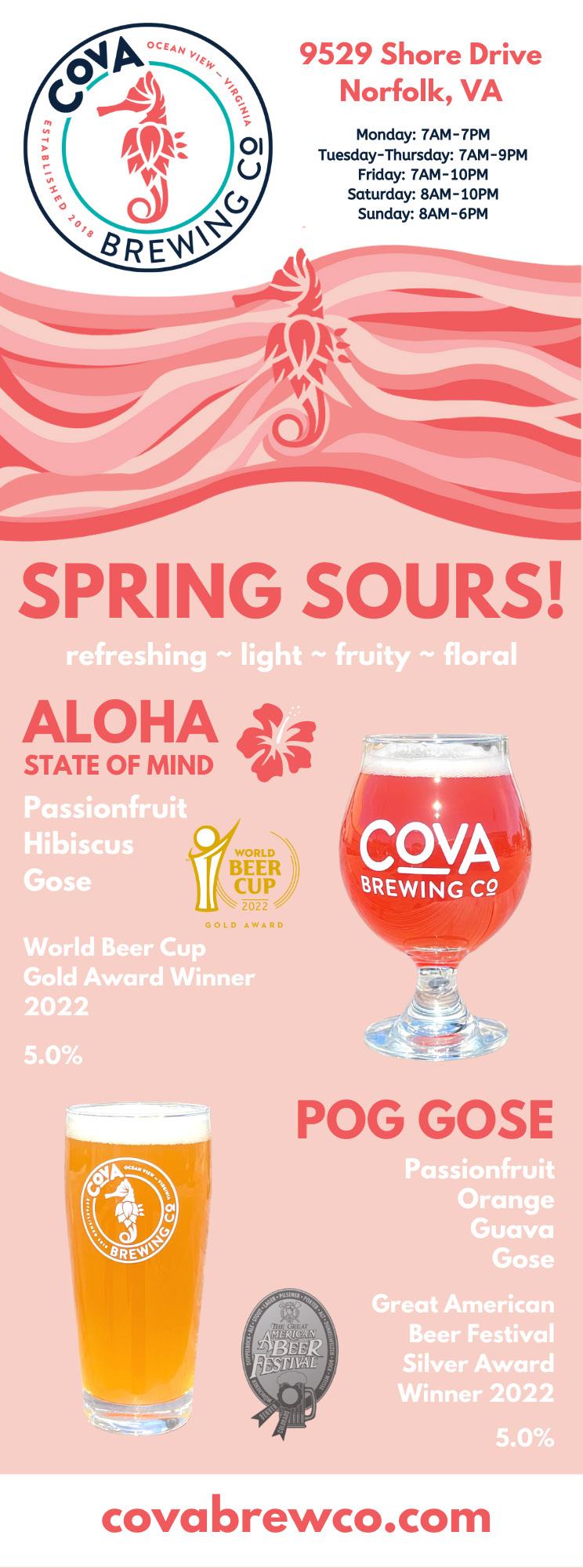
2 minute read
Belgian Beers Are Here to Stay
Belgium’s array of classic styles have become mainstays in Virginia’s craft beer scene
By Chris Cook
The origins of beer have long been sought out and debated. Some beerstorians pinpoint ancient Mesopotamia as the original brewhouse of barley-based beer, while others claim earlier fermentations of different cereal grains around the world as beer’s true parentage. But in tracing the lineage of Virginia’s favorite beverage, one would be remiss to omit Belgium.
Belgium is responsible for a wealth of beer styles that have stood the test of time. From the Abbey ales brewed in monasteries to the farmhouse ales that hydrated field laborers, many styles that are now commonplace in the craft beer scene trace their roots back to the Northwestern European country.
“Belgian beers are some of the most complex beers out there,” said Brian Nelson, brewmaster at Hardywood Park Craft Brewery in Richmond. “When I think of Belgian beers, a lot of it is looking at the old Trappist ales – your Chimay, Duvel, Leffe, Rocquefort, those types of beers that are really complex. They put out their single, double, triple and quad; those amount to various levels of flavor and alcohol. Using the Belgian yeast is very exclusive to those beers and makes them what they are.”
From Trappist styles like the double and triple to farmhouse favorites like the saison, Nelson and his Hardywood team have produced nearly every style of Belgian beer popular today – and a few others from deeper in the history books. The Hardywood Singel was Hardywood’s first flagship brew and remains the brewery’s homage to the lesser-known member of the Trappist monk quartet. Other offerings such as Hardywood’s Peach Tripel, Virginia Blackberry White Ale and Cuvee Peach offer moderns spin on classic Belgian profiles. Recently, Hardywood bottled a barrel-aged Flander’s Red – a Belgian sour style that draws comparisons to red wine – that took five years from start to finish, a timeline typical for a style that dates back to the 19th century.
Even with such an array of styles, however, beer drinkers can expect commonalities across the Belgian beer spectrum. Most Belgians offer a range of signature esters and/or phenols, compounds that provide their unique flavor and aroma profiles. Driven by yeast native to the original brewers of those styles, esters can impart fruity qualities like apple, banana and pear, while phenols provide more spicy characteristics like clove. Navigating the spectrum between those flavor profiles is a study in both the art and science of brewing.
“You can’t fake a Belgian beer with a California ale strain,” Nelson added.
Through the manipulation of variables including fermentation temperature, tank pressure and treatment of the style-specific yeast, brewers can produce a range of different beers from a single Belgian yeast. Even older brewing techniques that were standard to the original Belgian breweries – like prolonged aging, wild fermentation and generational yeast propagation – are still in the repertoire of today’s brewers seeking to replicate those brews.
Luckily, seekers of quality Belgian-style beer in Virginia aren’t limited to the corked imports on store shelves. Belgian beers have become staple offerings for many of Virginia’s breweries, and with good reason. Ranging from light to dark, from sessionable to strong, from spicy to fruity, their versatility complements the array of IPAs and stouts that often dominate taproom lineups. Their complexity provides a rich beer-drinking experience in a single pint, and styles like saison and wit offer brewers a playground for experimentation.
“We do a process where we knock out the fermentation at a lower temperature and then let it free rise to bring out those esters slowly,” Nelson said of Hardywood’s Belgian brews. “You can’t do it all at once. It has to work up to that temperature so you hit those spots along the way during different portions of fermentation.”
Nelson also noted that, like the original Trappist breweries, Hardywood recycles the yeast from its Singel fermentations through generations, which can change the flavor profile over time as the yeast evolves. But, for all the evolutions to the craft beer scene and the trends that shape the market, Belgian beers have proven they are here to stay.










